From escort missions that are the equivalent of trying to carry bone china through a live fire exercise to inventory management as designed by Satan’s own Feng Shui consultant, we are united by the things we hate. But as individuals, we also have our gears ground disproportionately hard by some idiosyncratic pet peeves. For this feature, PC Gamer’s writers were asked to pick the things that they loathe most in games, which other people might not feel quite so passionate about.
Let us know what piece of design you personally can’t stand in the comments. There will be bonus points for anyone who really loses it over bad minimaps.
This article was originally published September 2016. We've updated it with more peeves, because there are so many.

Getting Into boats
Honestly, has there ever been a game which has handled the transition from lovely land to small seafaring vessel in a manner that was anything less than awful? I’ve been playing a ton of The Witcher 3 recently, and the boats are classic bullshit. Try to casually saunter aboard and Geralt invariably slips betwixt dock and hull. Try to jump instead, and the animation—which is clearly inappropriate for safe boat embarkment—sends him flying clear over and into the drink. Once soaked, you face trying to shamefacedly clamber out, character model bucking wildly as it transitions between swimming and walking modes. Anything but pixel perfect alignment results in the kind of thrashing that would usually see Chief Brody clear the beach. From GTA to Assassin’s Creed, small boats are an absolute blight on open world games. Big ones aren’t much better either, as is any obstacle you end up having to swim slowly around looking for a point of ingress. See also: mountaintop markers, minimaps, and slopes that seem to have been smeared with butter. —Tim Clark
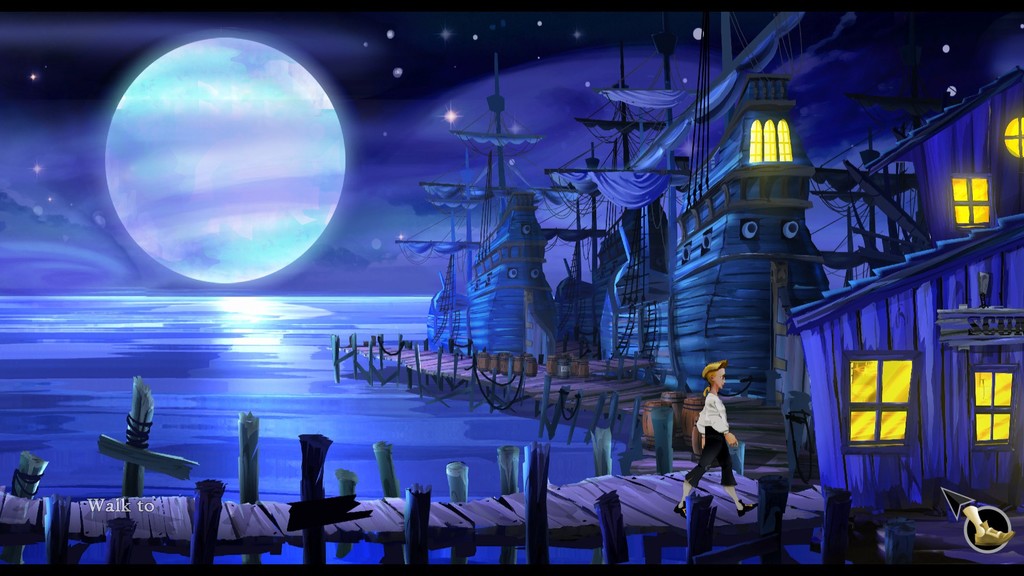
Adventure games that make you watch the character walk across every screen
Adventure games would probably be my favorite genre if it weren’t for this one time-consuming slog. I don’t mind watching my dopey pixelated avatar mosey through an intricately detailed mural depicting a shipyard or haunted house or magical Russian forest, but good God, if I mash the mouse button just let me transition to the next scene right away. There’s a lot to soak in, sure, and spending time on each screen means a puzzle solution or item might catch my eye, but if I know the solution to a puzzle or want to check out a specific panel, let me go. Pajama Sam taught me that I shouldn’t be afraid of the dark, but it also taught little James to look inside and see the void. —James Davenport
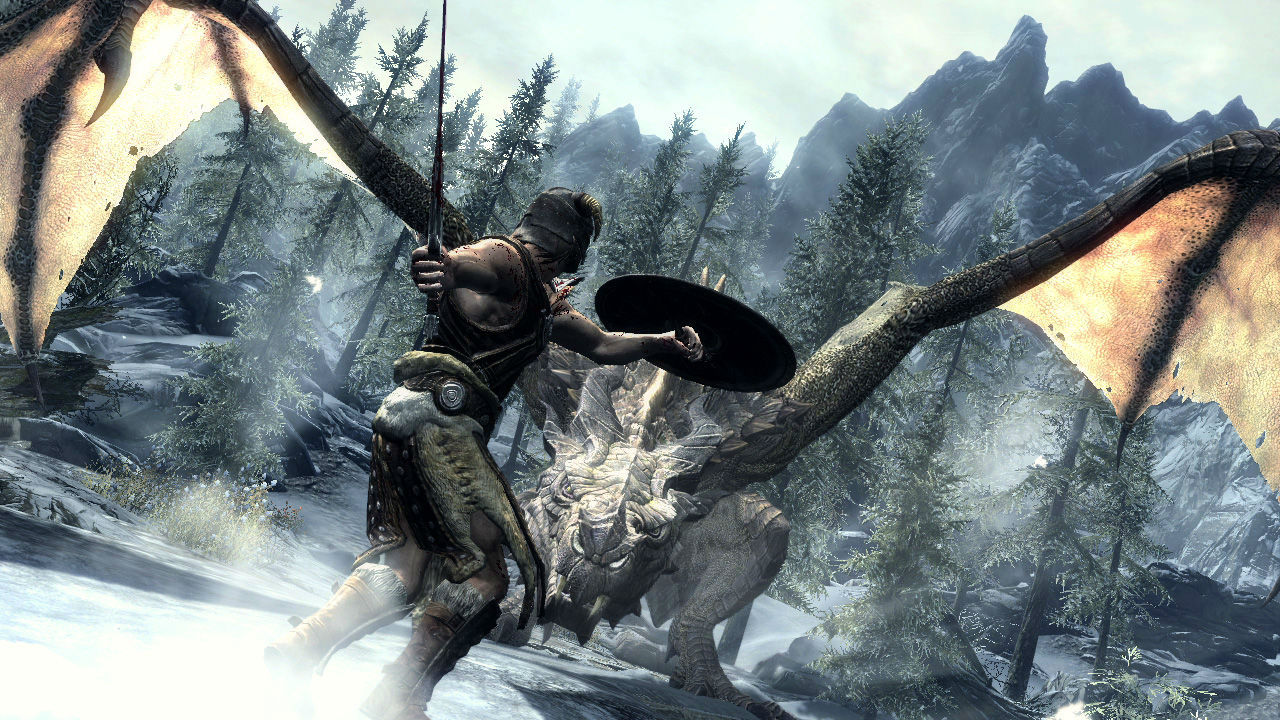
Combat music that is the same no matter what you’re fighting
I get the design impulse for exciting music to play when entering combat: it’s cinematic. But in cinema, combat music is specifically scored depending on the scene, whereas in most games it’s the same track no matter what. Entering combat with a dragon calls for a certain amount of gravitas. Entering combat with a slightly oversized rat or a crab? It probably doesn’t call for the same degree of pomp as the dragon fight. It’s hard to not feel a little silly cutting down a large bee with one lazy swipe of your axe to music that sounds like it was scored for the climax of 300.
Worse still, combat music will begin not just when you decide to fight, but when something decides to fight with you. In some cases, the thing that has decided to fight with you is a spider that saw you sprint past its nest a few minutes ago and now is slowly scuttling toward you completely unseen through dense underbrush. Meanwhile, you’ve heard the music and have stopped sprinting and are just sort of looking around, wondering where and when this exciting bout of combat is supposed to take place. Just keep waiting! Like in all the best action movies, sometimes our hero has to stand there craning his next around for several minutes while some pitiful monster slowly trundles a few hundred yards to experience the honor of being instantly killed. —Chris Livingston
Keep up to date with the most important stories and the best deals, as picked by the PC Gamer team.
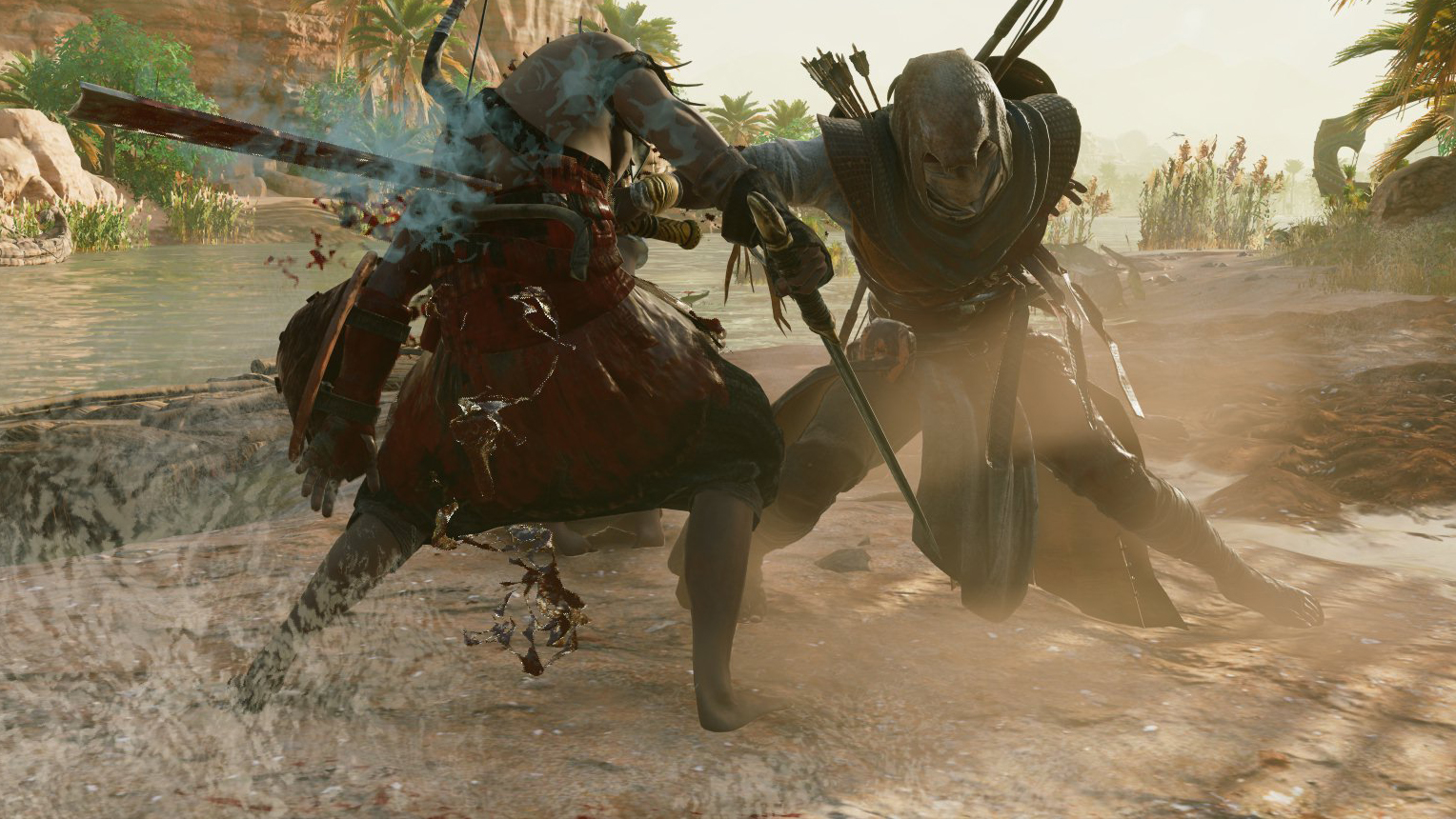
Games that automatically start on first launch
I launched Assassin's Creed: Origins the other day, planning to poke around the graphics options to make sure it was running OK, but instead I got a cutscene. And then another and another. I skipped them all and closed the game because I had to go make dinner.
I get the assumption. You figure that if someone is launching a game for the first time, they intend to start playing it. But that is false. Just because I run a game doesn't mean I have an hour to watch videos and do tutorials. I may have just been trying to see if it runs properly, and I may alt-tab out to finish an email, or go grab a snack before starting. So always launch to a menu! Always. Always always. Please. A menu. And make cutscenes pausable. Why aren't cutscenes pausable? —Tyler Wilde
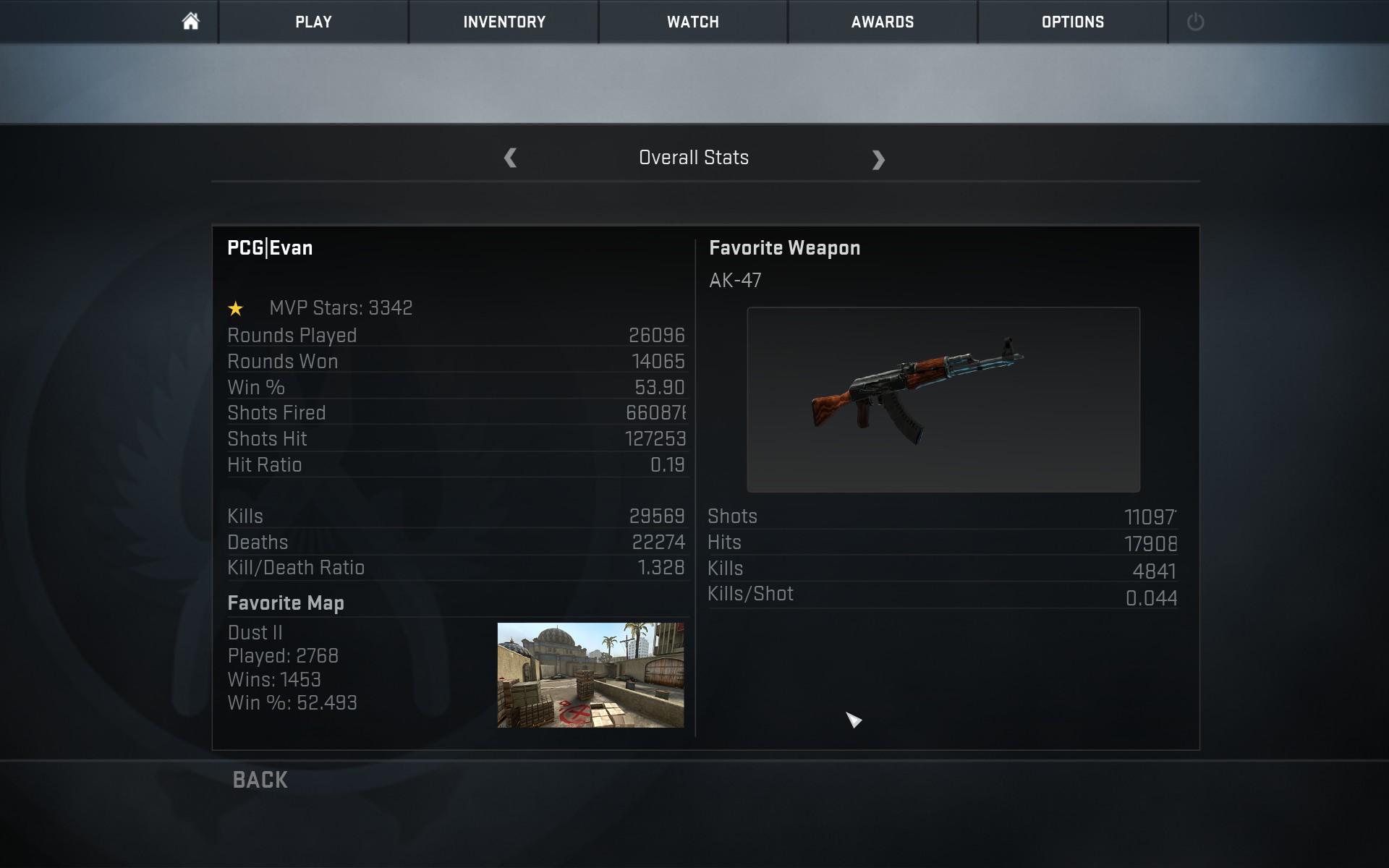
Inadequate stat tracking
Having already denounced the use of C as a crouch button, I turn my attention to the awful implementation of personal stats in most competitive games. Dota 2 seems to do an OK job of it, and Overwatch, even though it denies you any kind of insight into your match history, at least has an API for third-party websites like Master Overwatch to pull data into. But otherwise, the big competitive games of our time do a miserable job of quantifying your performance.
CS:GO, the biggest FPS of our generation, is especially bad, burying a paltry handful of vanity stats in its “Awards” menu section. There’s nothing given to help me diagnose my strengths and weaknesses as a player. After four years, it doesn’t even display the number of bullets I’ve fired correctly. If any game deserves a heatmap to help you understand what areas of the map you’re succeeding and struggling on, it’s CS:GO. I understand that this is stuff that a game has to be built from the ground up to support, but it’s amazing how little effort is made to represent data in competitive games that ask players to play the same handful of maps hundreds of times—iterating, learning, and breaking bad habits is a core aspect of these games. Rainbow Six Siege, Rocket League, and others should take a page from StarCraft 2’s treatment of stats. —Evan Lahti
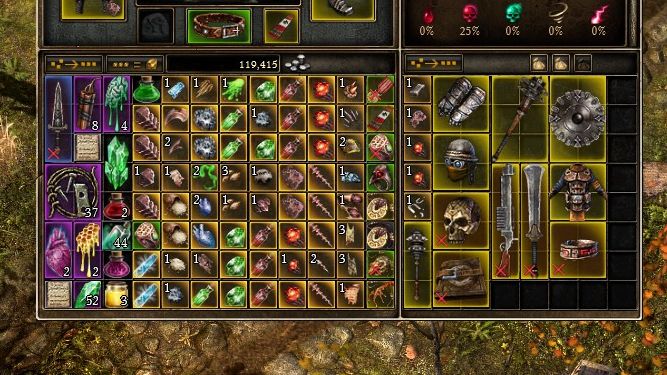
Inventory busywork
You gather a lot of tat in your average RPG. Clothes, weapons, magical amulets, random bits of cutlery. They all go into the long-established inventory grid, a mysterious menu screen that holds more rubbish than any ordinary human ever could. My Grim Dawn character currently carries around a helmet, some gloves, two maces, a sword, a primitive shotgun, a shield, a grimoire, two evil hearts and dozens of magical artifacts—and all that in addition to the heavy armour he’s already wearing.
Inventory grids are wildly unrealistic storage solutions then, so why is space so limited? Many games give you an infinite storage box separate from your character’s personal inventory. How many thousands of hours have players spent collectively shuffling items between these two arbitrary inventory menus? I want one huge searchable box with the following features: search, filter, ‘sell junk’ and ‘merge trinkets’ to autocombine gems in action RPGs.
Games even build terrible systems around inventory expansion. In Grim Dawn you collect extra bags, which become tabs on your personal inventory. In Deus Ex you have to spend Praxis points to carry more stuff. These upgrades aren’t giving you fun new abilities to play with, they’re removing an inconvenience. If your upgrade system is geared around making the game less annoying to interact with, the upgrade system is bad. —Tom Senior
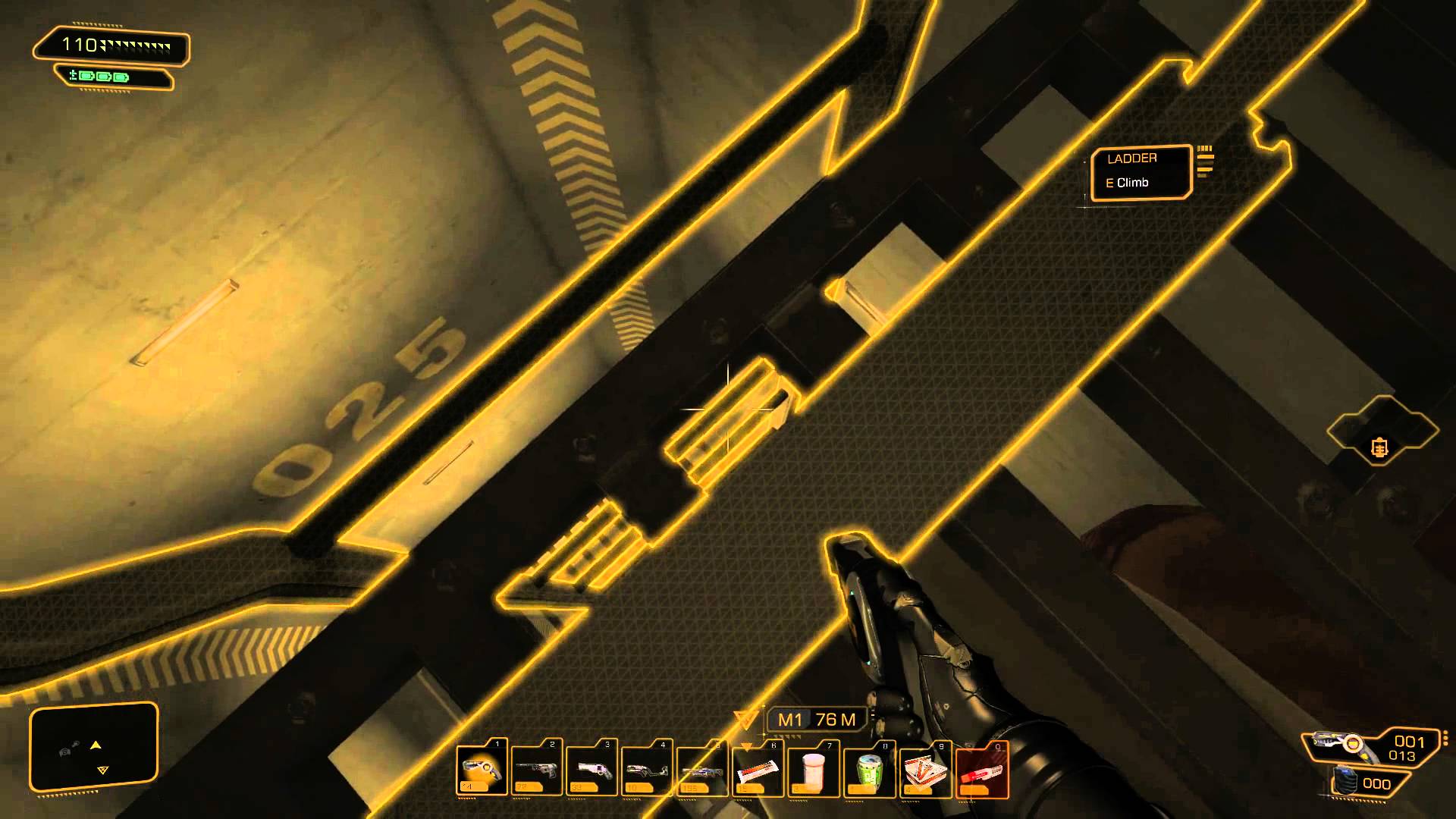
Climbing down ladders. And sometimes up ladders
In one of GTA Online’s heist missions that I played last year, I accidentally fell off a ladder to my death while trying to climb down from a building where I’d been providing accurate covering fire. It was probably my fault for not checking the controls properly, but the process felt more fraught and punishing that it had to. Couldn’t my guy just have grabbed onto the ladder automatically as I walked towards it? I’m not a fan of climbing Deus Ex: Human Revolution’s ladders either. They’re too slow! I haven’t played Mankind Divided, yet. I hope they have faster ladders.
Going towards a ladder in a game feels like a gamble. You wonder if a button might speed up your descent down the ladder, but no: it made your character jump off the ladder, take damage at the bottom, and die. I wish ladders in games were a little stickier to initially grab onto, and then smoother when it came to using the ladder itself—Mirror’s Edge uses pipes in a way that I feel ladders should be used. You’re always sliding down them quickly by default. You know intuitively what button does what. Who wants to wait while your character slowly steps down from a ladder?
Let’s get this over with. Make all ladder usage near-automatic and fast, whether you’re climbing or sliding. There’s no skill in using a ladder in a game. A ladder is just a thing keeping one place from another place. I don't think they're a real disaster in terms of game design, but they are annoying.
Except for the ladder in Metal Gear Solid 3. That ladder is fine. —Samuel Roberts
When there's too much loot
We love loot. Who doesn't love loot? Call it pilfering, stealing, or just helping ourselves to a well-deserved payoff, if there are some loose coins around in a game they're going into our pockets. But sometimes games are overstuffed with booty to the point where it can feel a little ridiculous, especially when you're playing a heroic and noble character who is also constantly stealing from strangers, friends, and foes alike.
Above, here I am in Assassin's Creed Origins, meeting with Cleopatra and asking for news about my wife, information I consider to be fairly important. At the end, I tell Cleopatra about some of the horrors I've witnessed, a fairly grave conversation. Yet in between, while I follow Cleopatra, I pass by three loot containers—presumably belonging to her and filled with her loot—and I just go ahead and steal it all (quite noisily as well). Yes, I am partially to blame, since I'm making the choice to steal. But it's hard to focus on not stealing when the developers scatter treasure absolutely everywhere in our path. —Chris Livingston
The collective PC Gamer editorial team worked together to write this article. PC Gamer is the global authority on PC games—starting in 1993 with the magazine, and then in 2010 with this website you're currently reading. We have writers across the US, UK and Australia, who you can read about here.


